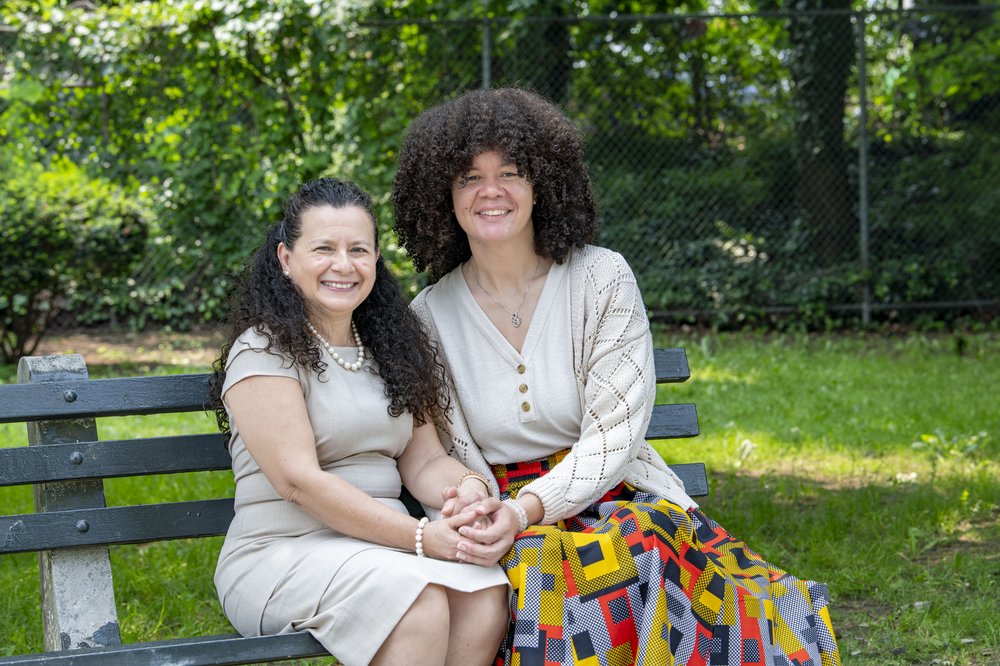NYC expands mental health services at domestic violence shelters as number of clients rises
July 24, 2025, 6:31 a.m.
The program connects clients with supports like therapy and medication management on site so they can heal faster.

It could soon become easier for domestic violence survivors to access mental health services at New York City shelters, as the city looks to expand a 2-year-old initiative to shelters citywide.
Adams administration officials are preparing to announce that 41 of the city’s 54 domestic violence shelters will provide mental health and medication therapy on site — up from nine shelters where the program has been showing success since May 2023. The program so far has cut wait times for therapy from months to days and made it easier for survivors, including children, to get treatment.
In a preview of the expansion shared with Gothamist, city officials said they expect dramatically lower wait times citywide and improved outcomes for significantly more families in the system.
“You really need to take care of your whole mental health in order to take care of your physical health, in order to take care of your family and also to be a member of the community,” said Dr. Obianuju Berry, the initiative's director at New York City Health and Hospitals.
The roughly $6 million initiative offers family screenings, individual and group sessions, and medication management at no cost to clients. Residents can also attend weekly therapy via telehealth or at NYC Health and Hospital facilities.
The program has served more than 700 patients with 5,600 behavioral health appointments so far, officials said. Nearly three-quarters of participants reported improved sleep, 77% reported improved relationships with their families and children, and all of those who initially reported suicidal thoughts said they had decreased, according to the Mayor’s Office to End Domestic and Gender-Based Violence. Previously, many city shelters lacked on-site mental health services.
“ Those sessions … they made me feel comfortable,” Aisha Wilson, 45, who left an abusive relationship earlier this year along with her young son and daughter, said on a recent afternoon. “They made me feel empowered. They helped me forgive myself for the things that I felt so guilty for for all these years.”
The expansion comes as official data shows domestic violence appears to be worsening in the city. Almost 12,000 people, most of them children, stayed in domestic violence shelters last year, according to a city report — an increase of about 1,000 from 2023. These facilities are distinct from the vast network of shelters overseen by the city Department of Homeless Services, though many of the same residents have cycled in and out of both.
Since the COVID-19 pandemic, domestic assaults and related violations have risen even as most other types of major crime have been trending downward. Experts say the increase could partly reflect greater reporting, better police training on recognizing signs of domestic violence, and the pandemic's lingering effects.
According to the latest available state data, there were about 43,000 domestic violence-related incidents in the city in 2023, including felony assaults, sexual assaults and violations of protective orders. Annual totals have been steadily rising for the past several years, with 39,000 such incidents in 2022, 35,000 in 2021 and 31,000 in 2020.
Domestic violence felony assaults — those that cause serious injuries — made up almost half of all reported felony assaults in the first six months of 2024 and 2025, according to the NYPD.
What we do notice through history is that whenever there is some type of crisis, we do see higher rates of violence.
Obianuju Berry, initiative director at NYC Health and Hospitals
Dr. Berry attributed some of the increase to external stressors like poverty, political strife and global instability.
“What we do notice through history is that whenever there is some type of crisis, we do see higher rates of violence,” she said.
Officials and advocates said bringing mental health services to domestic violence shelters will help ensure survivors get help addressing trauma earlier, as families — especially children — can otherwise lose out on care.
“ That's going to make a big difference for folks who might be uncomfortable about therapy but also for folks who might be too depressed [or afraid] to get on a subway,” Chitra Raghavan, professor of psychology at CUNY’s John Jay College of Criminal Justice, said. “Or [they] maybe relate better to therapists being in the same physical space [rather] than doing it over Zoom.”
Saloni Sethi, commissioner of the Mayor’s Office to End Domestic and Gender-Based Violence, said her agency hopes growing the initiative will help address patterns of abuse that often spill into communities.
While service providers across the city applauded these long-awaited interventions, they emphasized much more must be done about domestic violence.
“ We need to see more in youth violence prevention, teaching children at a very early age what a healthy relationship looks like and what it doesn't,” said Lauren Schuster, vice president of government affairs at the nonprofit Urban Resource Institute, which runs domestic violence shelters and was an early beneficiary of the mental health initiative.
Schuster said increased city support is crucial, particularly as providers brace for “catastrophic” federal cuts to the social safety net.
Michelle Bennett, a 45-year-old survivor who lives in Brooklyn, said she would encourage others in her situation not to feel ashamed to seek services and treatment. She said talking to a mental health professional has been transformational for her and her 10-year-old son.
“I am not the same person as I was back then,” she said.
NYC Hope offers resources and information about the city’s services for domestic violence survivors.
Domestic and elder abuse fuel rise in NYC felony assaults, data shows NYC moves to protect domestic violence survivors by making their voter records confidential Domestic violence deaths are rising in NYC, especially among women of color Domestic violence survivors bounce between NYC shelters as housing options dwindle